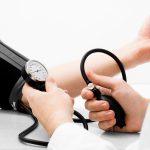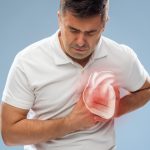What are hot flushes?
A hot flush may be a symptom of menopause. You may have a feeling of warmth and your skin may redden (flush). Sometimes you may have sweating. When these hot flushes occur at night, they are called night sweats.
Most females have some symptoms of menopause:
- 20% have no symptoms
- about 60% have mild to moderate symptoms
- 20% have severe symptoms
About 80% of females experience hot flushes and night sweats during menopause. However, they aren’t always troublesome.
Hot flushes may occur even before menopause (before your periods stop). They can continue to occur in females over 60 years of age.
What are the symptoms of hot flushes?
During a hot flush, you may get a feeling of warmth and your skin may become red (flush). This can start in your chest and spread to your neck and face.
People may experience hot flushes differently to each other. Some people may have them only sometimes, while other people may have them more often. They may last from a few seconds to minutes.
Night sweats may wake you from your sleep. You may need to change your sheets during the night due to heavy sweating (perspiration).
What causes hot flushes?
It’s not known why females have hot flushes. However, lower levels of oestrogen may influence how your body regulates temperature.
Things like stress or anxiety, spicy foods or alcohol may also have an impact your hot flushes.
When should I see my doctor?
If your hot flushes affect your daily activities or night-time sleep, you may want to speak to your doctor. Your doctor will talk to you about self-help methods and whether medication may be useful.
How are hot flushes diagnosed?
Hot flushes are diagnosed by your doctor. Your doctor will discuss your symptoms with you and provide advice on how they may be managed.
How are hot flushes treated?
Your doctor will recommend a treatment appropriate for you. There are different types of treatments that may help including:
- non-pharmacological (drug-free) treatments — such as cognitive behaviour therapy (CBT)
- non-hormonal drug treatments
- menopausal hormone therapy
Other treatments that you may have heard about are:
- herbal medicines — there is little evidence that over-the-counter herbal medicines work
- soy extracts and soy foods — there is limited evidence that these consistently reduce hot flushes
Your doctor may also give you advice on:
- stress reduction
- regular exercise
- weight management
- eating a balanced diet
- reducing your alcohol and caffeine intake
- quitting smoking
Can hot flushes be prevented?
You may be able to reduce the impact of hot flushes by identifying and avoiding things that trigger them. This may include things such as:
- stress
- anxiety
- spicy food
- alcohol
- hot drinks
Complications of hot flushes
Some people find that hot flushes impact their quality of life. You may find that night sweats disturb your sleep — you may need to change your sheets during the night because of heavy sweating.
These symptoms can also affect your mood. Females who have moderate to severe hot flushes and night sweats are almost 3 times more likely to have depressive symptoms than other people.
Your hot flushes may continue after menopause.
Research shows that people who have hot flushes at menopause may be at increased risk of:
- heart disease
- greater bone loss




